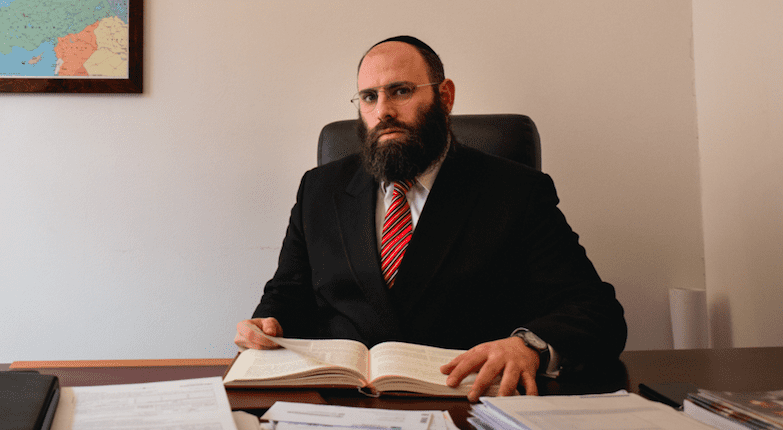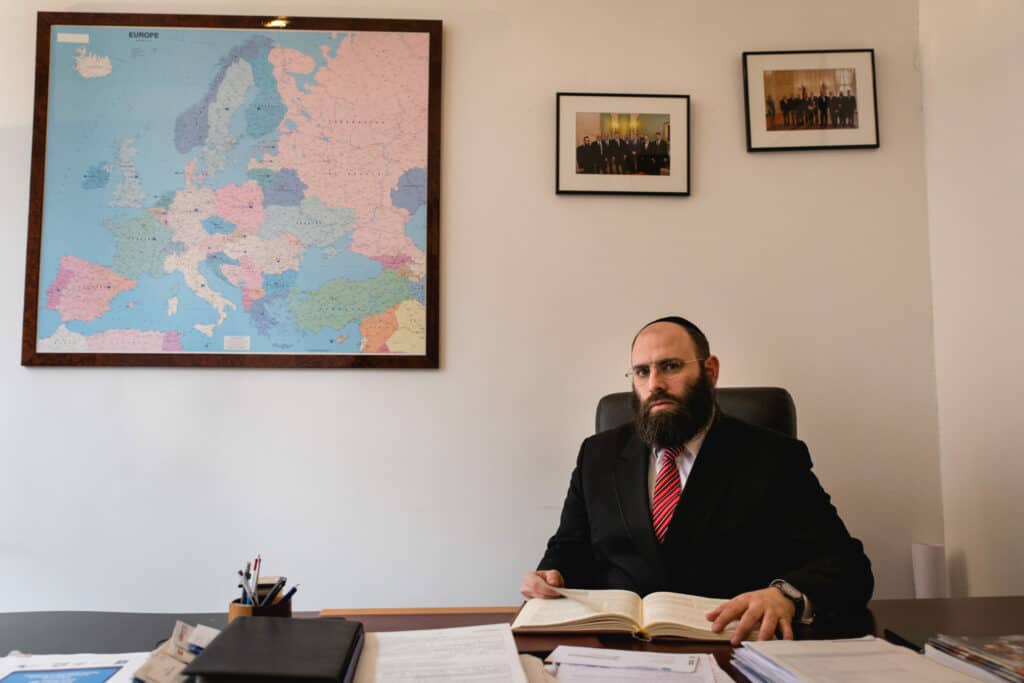Have you ever been stuck in a dire situation where someone wants to help you with a problem, but you know their approach isn’t going to work? And you don’t want to offend them by saying as much as their intentions are good?
In ordinary life, it’s a dilemma. But when it comes to the Millions of Jews living in Europe, the time for such niceties and politeness is now officially over.
On Tuesday, the EU’s Fundamental Rights Agency (FRA) and the European Commission published their second survey on discrimination and hate crime against Jews in the EU. The FRA’s director said the findings “make for a sobering read”. That would be understatement.
With 28% of respondents indicating that they have been harassed at least once in the past year, with 79% of Jews who experienced anti-Semitic harassment in the past five years not reporting this to the police or another organisation, with 34% avoiding visiting Jewish events or sites because they do not feel safe, with 38% considering emigrating because they did not feel safe as Jews in Europe, and with 70% considering that efforts by Member States to combat Antisemitism are not effective, this is not sobering. This is an unmitigated disaster.
The report, as brutal and stark as its findings are did not shock me in the slightest. It simply confirmed all the feedback, all the phone calls and all the reports that we at the Europaen Jewish Association had been getting, and made the red lines that we ratified at our conference in November all the more pertinent and pressing.
Before we get to the red lines, let us ask the most pressing question. Why is Europe failing so badly in making Jews feel secure? It does after all say all the right words, publishes reports and invests in people to fight the scourge of this oldest hatred. How can it be that 70% of Jews don’t believe it will make a difference?
The answer is wrapped up in the same word that entangles much of the good intentions of the EU institutions, and that word is competence.
Competence is basically which areas the EU can have a say (or interfere depending on your position). So, the EU can, if you are a Member State, tell you how many fish you can catch a year but not where your army should be deployed. It happens that human rights and freedom of religion, indeed the very subject of antisemitism itself is not an EU Competence. That means in essence that all the fine words, all the reports, and all of the various agencies looking at this in Brussels cannot compel, sanction or effectively reprimand any breaches. That, therefore, makes human rights, freedom of religion and antisemitism voluntary instead of compulsory and open to interpretation or political manipulation.
That’s problem number one. For example, during the religious slaughter debate in Denmark, it was said that animal welfare takes precedence over Freedom of Religion. When it comes to circumcision, a similar argument over the right of the child to choose is being habitually made, in many countries. We can, and often do, get into public discourse of the minutiae of such debates, on scientific, health and any number of grounds, but this misses the central point. Is Freedom of Religion (and freedom to practise) a fundamental right or not? Everyone says so, so it must be right? Then why are we, as a Jewish Association engaged every year in efforts across the continent to defend Kosher slaughter and Brit Milah? It is increasingly apparent that there is nobody to police, much less defend, this vital part of the foundation on which the EU is built. We as Jews are left with the Animal Farm scenario, where “all animals are equal, but some animals are more equal than others.”
The other words that get us all tangled up are political and expediency. And this is problem number two, that of Anti-Zionism/Anti-Israelism. It is clear in a number of countries, and from the EU’s own statistics from the last few years, that there are massive spikes in anti-Semitism whenever Israel is involved in defensive actions, such as operations in Gaza, or efforts to break the navy blockade. The BDS movement, and their followers in the left wing stir up hate speech, draw false parallels with South Africa under apartheid and raise modern blood libels. Anti-Zionism is, make no mistake, the modern ‘acceptable’ face of anti-Semitism. Looking at the report, over 85% of respondents in Belgium and France feel that the arab-Israeli conflict affects their feelings of safety “a great deal”. Whether you support the Israeli government or not, whether you are secular or not, that Israel affects you as a Jew is undeniable.
Which makes the EU’s position on the matter all the more ridiculous. Anti-Semitism is a no-no, but criticism of Israel is free speech. This from the mouth of the EU’s High Representative herself. Where is the red line on this free speech? Does it stop at Jewish Nazi? Zionist child killer? Israeli Organ harvester? There isn’t a clear answer, allowing the Israel haters and the modern anti-Semites in the far left and BDS movement to act and talk with impunity.
Let us recap. On two of the biggest touch-paper issues affecting anti-Semitism across the continent – whether real or perceived – the EU is either incapable in the first instance, and unwilling for the sake of political expediency to act on the second.
As I opened with, the time for niceties is over. Nobody is questioning the intentions of the European Institutions and European countries to tackle the problem, and we genuinely thank them for this commitment, but you can’t and wont tackle the oldest hatred leaving the competence question open ,nor by maintaining a two-faced approach to anti-Semitism where Israel is concerned. It really is the political equivalent of using a bucket to take the water out of a boat, without blocking the hole in the first place!
And that right there – those two gaping holes in the hull – are why the Jews interviewed by the survey – all 70% of us – don’t have any faith that efforts will be effective.
So, what can be done? The EJA sent every European political party “Jewish Red Lines” that were ratified by democratic vote by our members across Europe. None of them are rocket science, but they can and would plug the holes.
Our members said that Political parties and their leadership must sign up to the full IHRA definition of Anti-semitism. That Every European Country must appoint a dedicated Special Representative to combat anti-Semitism where one already doesn’t exist. That all political parties pledge to exclude from government parties or politicians that espouse anti-Semitism as defined by the IHRA definition. That all political parties must pass, in accordance with their respective rules of procedure, binding resolutions that reject BDS activities as fundamentally anti-Semitic, and lastly that all political parties support in writing and in party documents their support for freedom of religion and freedom of practice at Member State level and EU level.
These red lines are the bare minimum that is needed to make a real difference. Europe’s principal leaders and parties were sent them, will be aware of them, and should adopt them immediately if they are serious about tackling anti-Semitism and gaining the trust of Jews who feel literally cast adrift from the very people who tell them they want to help. If you really want to help us, the message is clear. Listen to us, adopt the red lines and let’s consign reports like this to the dustbin of history. Otherwise, expect a worse report next year. And the year after that too.















